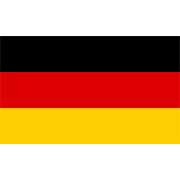Fiscal subject related
The EPR regulation will impact:
- Manufacturers
- Importers
- Distributors
of single-use plastic items. Sellers are required to adhere to the EPR mandates and provide their registration details to Amazon prior to the January 1, 2025 deadline. Listings that fail to comply will be removed post-deadline.
Single-use plastic (SUP) products are defined as items entirely or partially made of plastic that are not intended for repeated use. This category includes:
- Food storage containers
- Flexible material bags and wrapping
- Drink containers up to 3 liters
- Cups for beverages, along with their tops and lids
- Thin plastic shopping bags
- Moist towelettes for cleaning or personal care
- Consumer balloons
- Tobacco-related products with filters
You're deemed a producer if you:
- Operate within Germany and produce, fill, retail, or bring in SUP items.
- Sell SUP items to German customers from abroad via remote communication methods.
Compliance steps that need to be taken:
- Sign up with the German Environment Agency's Single-Use Plastics Fund platform (DIVID):
- Registration is currently open for German producers.
- Producers outside Germany can set up accounts starting April 1, 2024, and register beginning August 1, 2024.
- Enter your registration numbers on Amazon's Compliance Portal (set to launch between Q3 and Q4 of 2024).
- From 2025 on, annually report your SUP product sales to DIVID by May 15 and remit the associated environmental charges.
Key dates to remember:
- April 1, 2024: Account creation opens for non-German producers on DIVID
- August 1, 2024: Registration begins for non-German producers on DIVID
- Q3-Q4 2024: Launch of Amazon's Compliance Portal
- January 1, 2025: EPR regulation becomes active; non-compliant listings are to be deactivated.
Other news from Germany
Germany Updates Special VAT Audit Form (USt 7 A)
 Germany
Author: Ivana Picajkić
Germany
Author: Ivana Picajkić
On July 22, 2025, Germany's Federal Ministry of Finance (BMF) issued a revised USt 7 A form to standardize VAT special audits across all federal states, now mandatory upon its publication. The updated form supports IT compatibility, allows limited format deviations, and clearly defines audit scope, including OSS schemes, input tax deductions, and cross-border supplies. Read more
Subscribe to get access to the latest news, documents, webinars and educations.
Already subscriber? Login


Germany Updates E-Invoice Archiving Rules Ahead of 2025 Mandate
 Germany
Author: Ivana Picajkić
Germany
Author: Ivana Picajkić
Germany updated its GoBD bookkeeping rules on July 14, 2025, to align with the new B2B e-invoicing mandate effective from January 1, 2025, clarifying how structured electronic invoices must be stored for tax purposes. Businesses are now only required to archive the XML portion of e-invoices, including in hybrid formats like ZUGFeRD, provided it can be rendered readable upon request. Read more
Subscribe to get access to the latest news, documents, webinars and educations.
Already subscriber? Login


New document was uploaded: Q&A from the webinar: Germany's cash register rules: reporting mandate and TSE certificate
 Germany
Author: Ivana Picajkić and Ištvan Božoki
Germany
Author: Ivana Picajkić and Ištvan Božoki
On July 17th, 2025, Fiscal Solutions organized a free webinar on the topic of "Germany's cash register rules: reporting mandate and TSE certificate." The webinar was held by Fiscal Solutions Legal Consultant Ivana Picajkić and Technical Consultant Ištvan Božoki. Let’s find out more about answers to questions asked during the webinar. Read more
Subscribe to get access to the latest news, documents, webinars and educations.
Already subscriber? Login


New webinar was uploaded: Recorded webinar: Germany’s new cash register rules - Reporting mandate & TSE certificate
 Germany
Author: Ivana Picajkić and Ištvan Božoki
Germany
Author: Ivana Picajkić and Ištvan Božoki
On July 17th, 2025, Fiscal solutions organized a free webinar on the topic „Germany’s new cash register rules - Reporting mandate & TSE certificate“ The webinar was held by Ivana Picajkić, Legal Consultant and Ištvan Božoki, Technical Consultant. Let’s hear what he has to say about this topic. Read more
Subscribe to get access to the latest news, documents, webinars and educations.
Already subscriber? Login


New document was uploaded: S4F backoffice patch
S4F backoffice patch is intended for users who have already installed S4F backoffice and are intended to update existing installations to latest version. To do so apply only patches that are marked with version number that is newer than your currently installed instance of backoffice. Please make sure to install all available patches sequentially (without skipping). This package contains instruction, release notes, changelog and software packages required for deployment of this software component. Read more
Subscribe to get access to the latest news, documents, webinars and educations.
Already subscriber? Login


New event was created: Reminder - Join our free webinar: Germany’s new cash register rules - Reporting mandate & TSE certificate
 Germany
Author: Ivana Picajkić
Germany
Author: Ivana Picajkić
Big changes are coming to Germany’s fiscal landscape in 2025 - and businesses need to be ready. Starting January 1, 2025, all companies using electronic recording systems must register them with the tax office. At the same time, updates to the Technical Security Element (TSE) are on the horizon, bringing new requirements and potential compliance challenges. 📅 Join us on Thursday, July 17 at... Read more



New document was uploaded: Cash register reporting obligation in Germany
 Germany
Author: Ivana Picajkić
Germany
Author: Ivana Picajkić
The document outlines Germany’s mandatory cash register reporting obligation effective January 1, 2025, requiring all businesses using electronic recording systems with a Technical Security Element (TSE) to register their devices with the tax authority. This applies to cash registers, POS systems, and other devices, including temporary and unused ones, and must be done electronically via Mein ELSTER or the ERiC interface. Read more
Subscribe to get access to the latest news, documents, webinars and educations.
Already subscriber? Login

